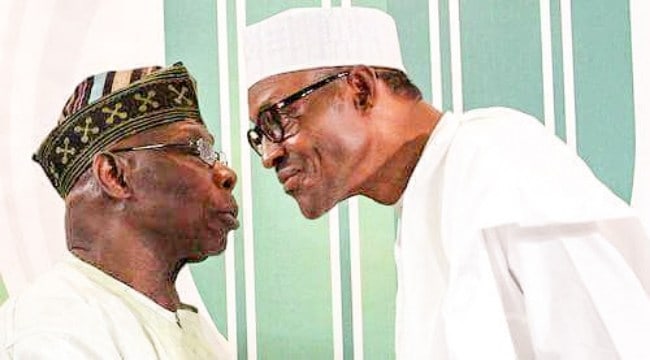Obasanjo vs. Buhari: Conflicting Testimonies Shake Nigeria’s Defense in $6b Mambilla Power Case
***Did Buhari’s Statement Hand Victory to Sunrise Power?
Nigeria’s legal battle over the $6 billion Mambilla Power Project has taken a complicated turn as former Presidents Olusegun Obasanjo and Muhammadu Buhari offered conflicting testimonies before the International Chamber of Commerce (ICC) Court of Arbitration in Paris.
The contradictions could weaken Nigeria’s case against Sunrise Power and Transmission Company, which is demanding $2.3 billion in compensation for an alleged breach of contract.
Testifying on January 22, 2025, Obasanjo firmly rejected the legitimacy of the 2003 contract, arguing that it was illegally awarded by the then Minister of Power, Olu Agunloye, despite the Federal Executive Council (FEC) rejecting it.
“The agreement relied on by Sunrise Power was never valid. A minister cannot single-handedly approve a contract after the Federal Executive Council had rejected it,” Obasanjo stated.
He insisted that the minister had no executive authority to award such a contract, making it clear that Nigeria should not be liable for any compensation claims.
However, Buhari’s testimony the following day—January 23, 2025—painted a different picture, one that could seriously undermine Nigeria’s defense.
When asked about the deal, Buhari acknowledged that his administration had negotiated with Sunrise Power, implying that Nigeria recognized the contract in some capacity.
“I directed the Attorney General, Abubakar Malami (SAN), and the Minister of Works and Power, Babatunde Fashola (SAN), to negotiate with Sunrise Power,” Buhari reportedly told the arbitration panel.
This admission contradicts Obasanjo’s claim that the contract was void from the start. Buhari’s statement suggests that successive Nigerian administrations engaged with Sunrise Power, which could strengthen the company’s legal argument that Nigeria had, in fact, honored the agreement—until it didn’t.
In a surprising twist, Buhari reportedly told the panel that Nigeria—not Sunrise Power—was acting like an extortionist in the dispute, a remark that could be damaging to the government’s case.
Legal analysts argue that Buhari’s admission could be a major blow to Nigeria’s argument that the contract was never valid. If the ICC arbitration panel views his testimony as a confirmation that Nigeria recognized and acted upon the contract, it could significantly weaken the government’s defense.
Meanwhile, Olu Agunloye, the former Minister of Power accused of improperly awarding the contract, is facing trial in Nigeria on charges of forgery, corruption, and abuse of office. He has denied any wrongdoing, insisting that he is being scapegoated to weaken Sunrise Power’s case.
With the arbitration process approaching its final stages, Nigeria faces a real risk of being ordered to pay the $2.3 billion compensation. The contradictory testimonies from two former Presidents could prove damaging, raising serious questions about whether the government’s legal strategy has already collapsed from within.
As the case unfolds, the big question remains: Did Buhari’s statement just cost Nigeria billions?

